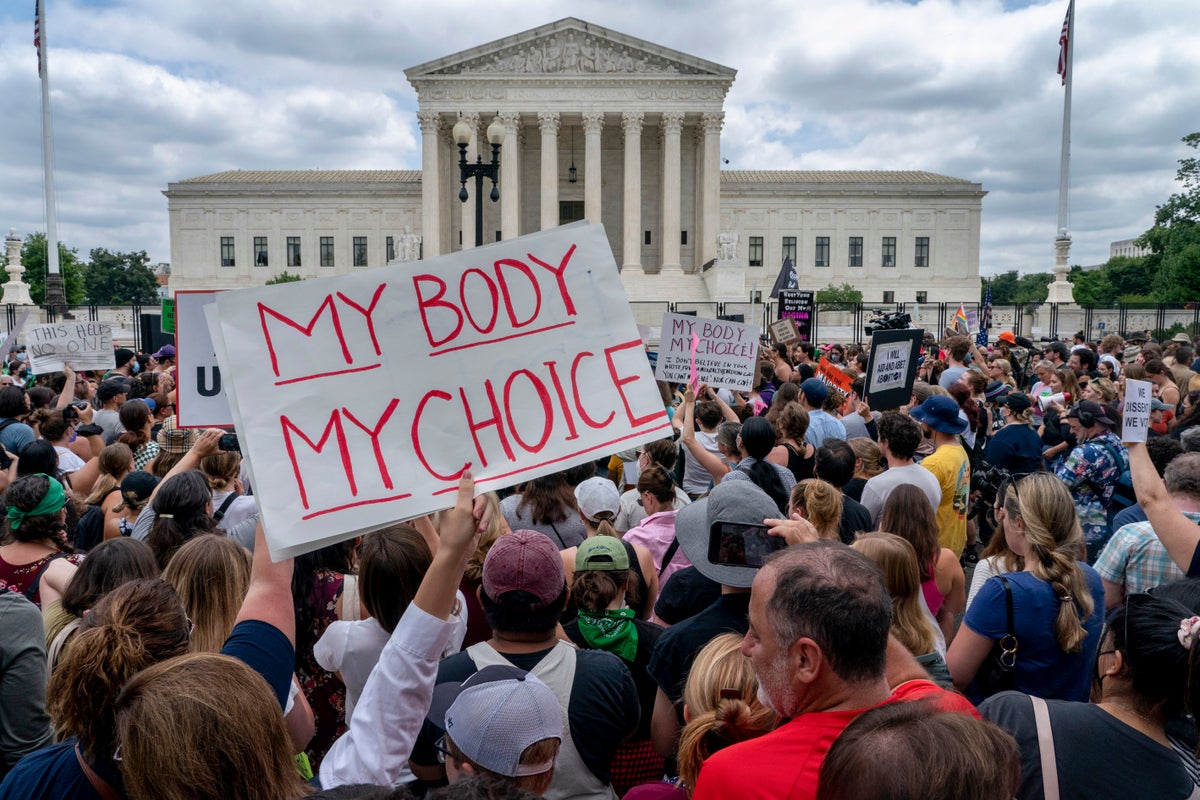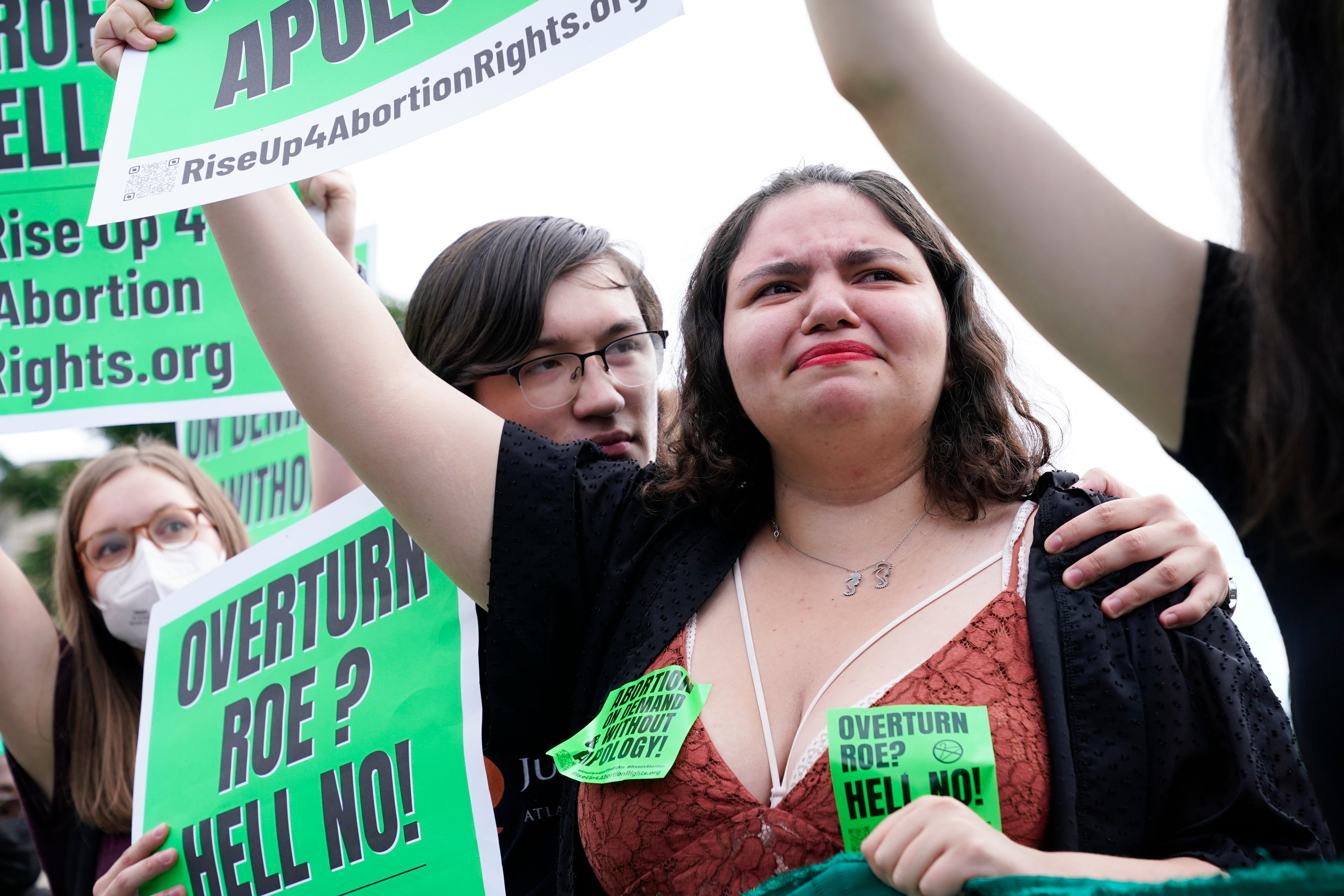
The US Supreme Court has ended constitutional protections for abortion that have been in place for nearly 50 years by deciding to overturn the landmark Roe v Wade ruling.
It is expected to lead to abortion bans in roughly half of US states.
Here is what this all means and how laws differ in the UK:
– What is Roe v Wade?
In January 1973, the US Supreme Court ruled that a woman’s right to terminate her pregnancy was a private matter and protected by the US constitution.
A few years earlier, a 25-year-old single woman, Norma McCorvey using the name “Jane Roe”, challenged the criminal abortion laws in Texas.
She successfully challenged Henry Wade, who was the district attorney for Dallas County.
– What was the law on abortion before Roe v Wade?
At the time, abortion was illegal in Texas unless it was done to save the mother’s life.

It was a crime to get an abortion or to attempt one in 30 of the 50 states.
Abortion was somewhat legal in just four states and allowed under limited circumstances in 16 others.
– What has happened?
The US Supreme Court overturned Roe v Wade, allowing individual states to ban it.
Justice Alito, in the final opinion issued on Friday, said that Roe and Planned Parenthood v Casey, the 1992 decision that reaffirmed the right to abortion, was wrong the day it was decided and must be overturned.
Authority to regulate abortion rests with the political branches, not the courts, Justice Alito wrote.
– Who supports this and why?In the US, religious, moral and constitutional arguments were put forward against Roe v Wade by conservative-leaning politicians.
In the UK, charity Christian Action Research and Education (Care) said “the most compassionate societies esteem and protect” both mothers and babies.
Chief executive Ross Hendry said: “Limiting access to abortion must be accompanied by appropriate support for women experiencing crisis pregnancies, and families raising children.
“This is what a true pro-life ethic looks like.”
Spokeswoman for the Right To Life UK group, Catherine Robinson, said the ruling overturns “an unjust law” and is the “beginning of the legislative battle over abortion, certainly not the end”.
– What are those who oppose this saying?
President Joe Biden has said “it’s a sad day for the court and the country”.
The decision came against a backdrop of public opinion surveys that find a majority of Americans oppose overturning Roe and handing the question of whether to permit abortion entirely to the states.
Polls conducted by The Associated Press-NORC Centre for Public Affairs Research and others also have consistently shown about one in 10 Americans want abortion to be illegal in all cases.
A majority are in favour of abortion being legal in all or most circumstances but polls indicate many also support restrictions especially later in pregnancy.
In the UK, Boris Johnson, the SNP’s Nicola Sturgeon and former Labour leader Jeremy Corbyn hit out at the decision.
The British Pregnancy Advisory Service (Bpas), the UK’s leading abortion provider, said it is “appalled”.
– What does this mean for the US?
Thirteen states, mainly in the South and Midwest, already have laws on the books that ban abortion in the event Roe is overturned.
Another half-dozen states have near-total bans or prohibitions after six weeks of pregnancy, before many women know they are pregnant.

Abortion access is expected to be cut off for tens of millions of women of reproductive age, according to research from Planned Parenthood.
– How does UK law differ to the US?
Abortions can take place in the first 24 weeks of pregnancy in England, Scotland and Wales.
However, they have to be approved by two doctors.
They must agree having the baby would pose a greater risk to the physical or mental health of the woman than a termination.
It is allowed after this time period if there is a risk to the life of the woman, evidence of severe foetal abnormality or risk of grave physical and mental injury to the woman.
However, in Northern Ireland abortion can only be obtained if the woman’s life is at risk and in some cases of foetal abnormality.







